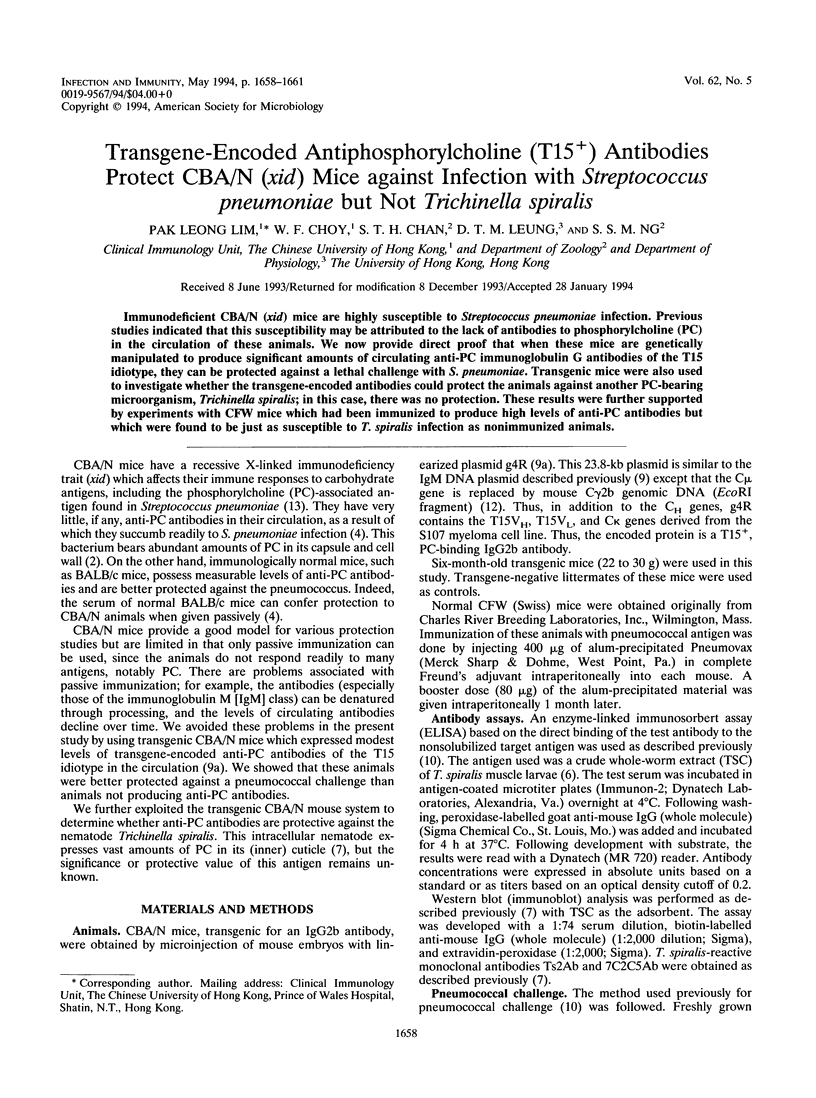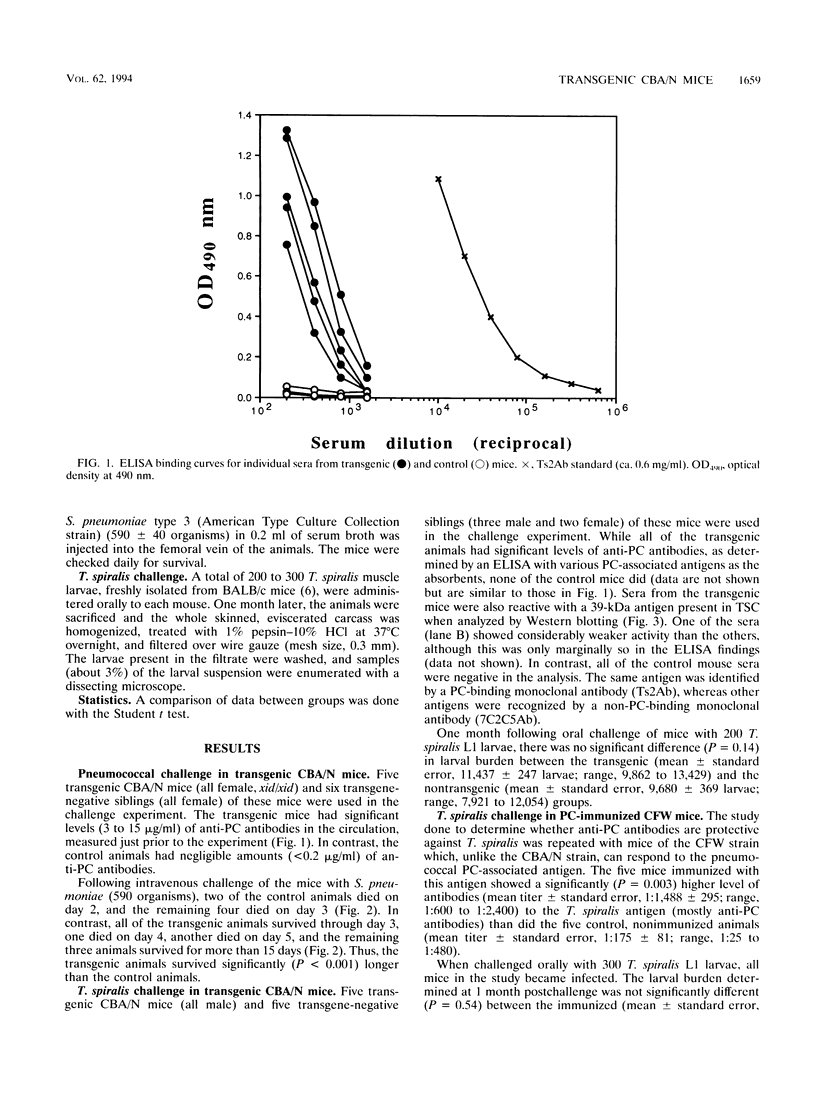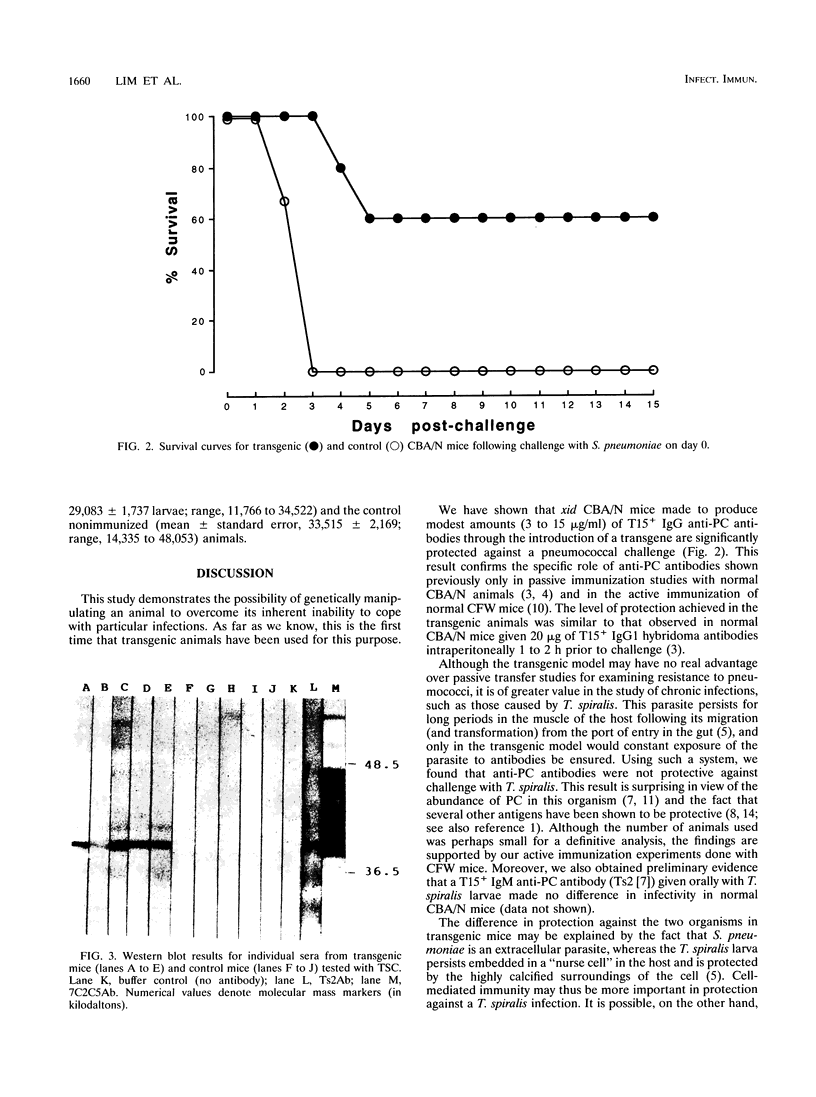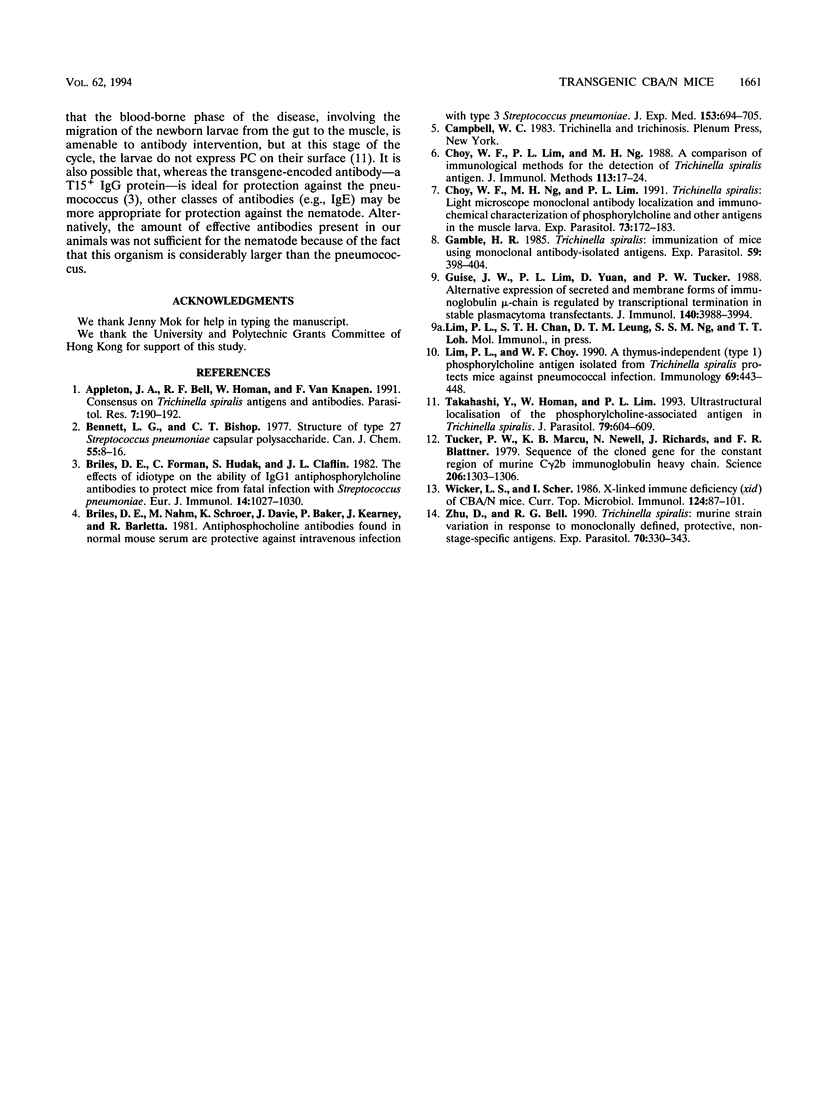Abstract
Immunodeficient CBA/N (xid) mice are highly susceptible to Streptococcus pneumoniae infection. Previous studies indicated that this susceptibility may be attributed to the lack of antibodies to phosphorylcholine (PC) in the circulation of these animals. We now provide direct proof that when these mice are genetically manipulated to produce significant amounts of circulating anti-PC immunoglobulin G antibodies of the T15 idiotype, they can be protected against a lethal challenge with S. pneumoniae. Transgenic mice were also used to investigate whether the transgene-encoded antibodies could protect the animals against another PC-bearing microorganism, Trichinella spiralis; in this case, there was no protection. These results were further supported by experiments with CFW mice which had been immunized to produce high levels of anti-PC antibodies but which were found to be just as susceptible to T. spiralis infection as nonimmunized animals.
Full text
PDF



Images in this article
Selected References
These references are in PubMed. This may not be the complete list of references from this article.
- Briles D. E., Forman C., Hudak S., Claflin J. L. The effects of idiotype on the ability of IgG1 anti-phosphorylcholine antibodies to protect mice from fatal infection with Streptococcus pneumoniae. Eur J Immunol. 1984 Nov;14(11):1027–1030. doi: 10.1002/eji.1830141112. [DOI] [PubMed] [Google Scholar]
- Briles D. E., Nahm M., Schroer K., Davie J., Baker P., Kearney J., Barletta R. Antiphosphocholine antibodies found in normal mouse serum are protective against intravenous infection with type 3 streptococcus pneumoniae. J Exp Med. 1981 Mar 1;153(3):694–705. doi: 10.1084/jem.153.3.694. [DOI] [PMC free article] [PubMed] [Google Scholar]
- Choy W. F., Lim P. L., Ng M. H. A comparison of immunological methods for the detection of Trichinella spiralis antigen. J Immunol Methods. 1988 Oct 4;113(1):17–24. doi: 10.1016/0022-1759(88)90377-8. [DOI] [PubMed] [Google Scholar]
- Choy W. F., Ng M. H., Lim P. L. Trichinella spiralis: light microscope monoclonal antibody localization and immunochemical characterization of phosphorylcholine and other antigens in the muscle larva. Exp Parasitol. 1991 Aug;73(2):172–183. doi: 10.1016/0014-4894(91)90020-w. [DOI] [PubMed] [Google Scholar]
- Gamble H. R. Trichinella spiralis: immunization of mice using monoclonal antibody affinity-isolated antigens. Exp Parasitol. 1985 Jun;59(3):398–404. doi: 10.1016/0014-4894(85)90095-5. [DOI] [PubMed] [Google Scholar]
- Guise J. W., Lim P. L., Yuan D., Tucker P. W. Alternative expression of secreted and membrane forms of immunoglobulin mu-chain is regulated by transcriptional termination in stable plasmacytoma transfectants. J Immunol. 1988 Jun 1;140(11):3988–3994. [PubMed] [Google Scholar]
- Lim P. L., Choy W. F. A thymus-independent (type 1) phosphorylcholine antigen isolated from Trichinella spiralis protects mice against pneumococcal infection. Immunology. 1990 Mar;69(3):443–448. [PMC free article] [PubMed] [Google Scholar]
- Takahashi Y., Homan W., Lim P. L. Ultrastructural localization of the phosphorylcholine-associated antigen in Trichinella spiralis. J Parasitol. 1993 Aug;79(4):604–609. [PubMed] [Google Scholar]
- Tucker P. W., Marcu K. B., Newell N., Richards J., Blattner F. R. Sequence of the cloned gene for the constant region of murine gamma 2b immunoglobulin heavy chain. Science. 1979 Dec 14;206(4424):1303–1306. doi: 10.1126/science.117549. [DOI] [PubMed] [Google Scholar]
- Wicker L. S., Scher I. X-linked immune deficiency (xid) of CBA/N mice. Curr Top Microbiol Immunol. 1986;124:87–101. doi: 10.1007/978-3-642-70986-9_6. [DOI] [PubMed] [Google Scholar]
- Zhu D. Z., Bell R. G. Trichinella spiralis: murine strain variation in response to monoclonally defined, protective, nonstage-specific antigens. Exp Parasitol. 1990 Apr;70(3):330–343. doi: 10.1016/0014-4894(90)90115-s. [DOI] [PubMed] [Google Scholar]



